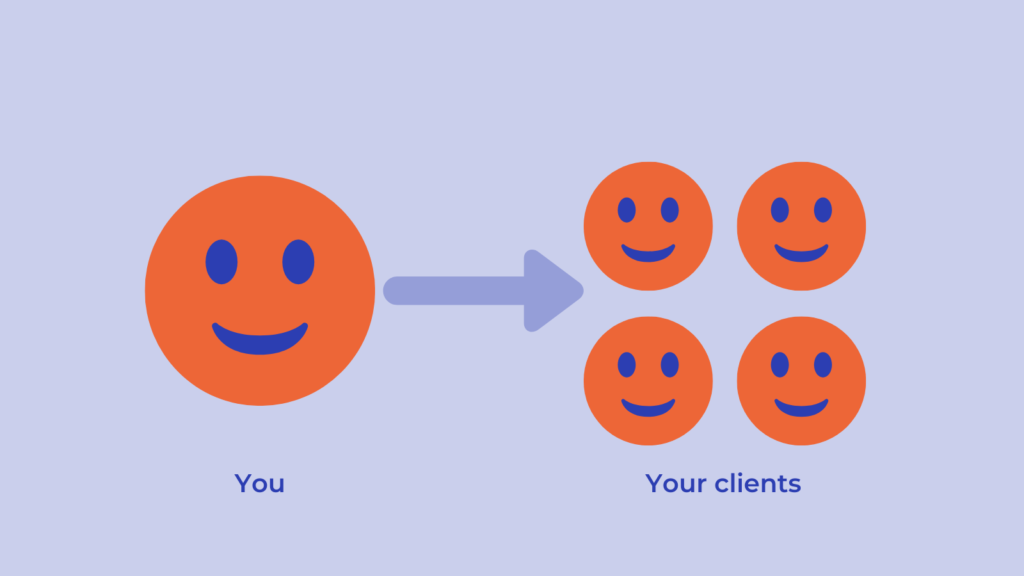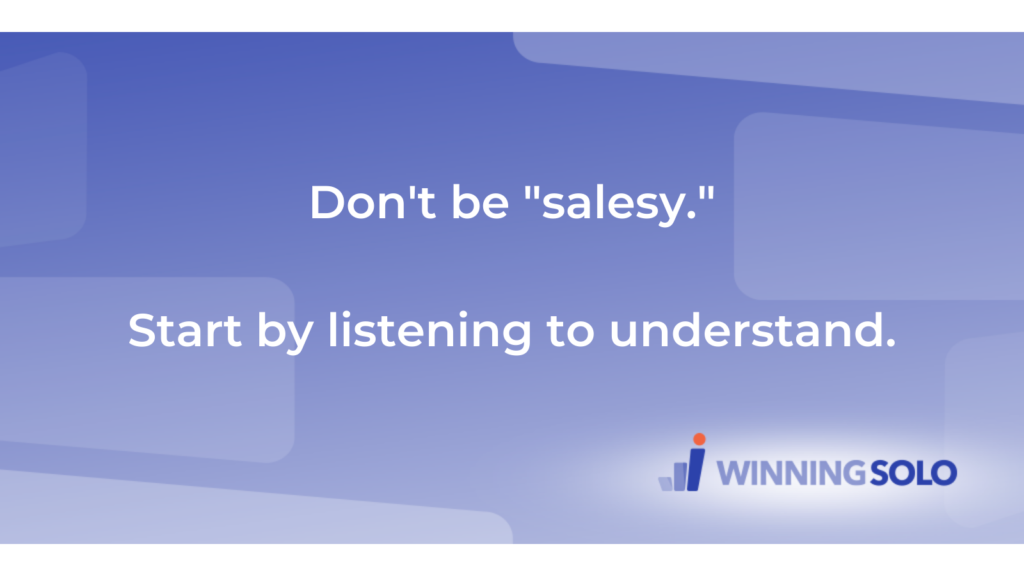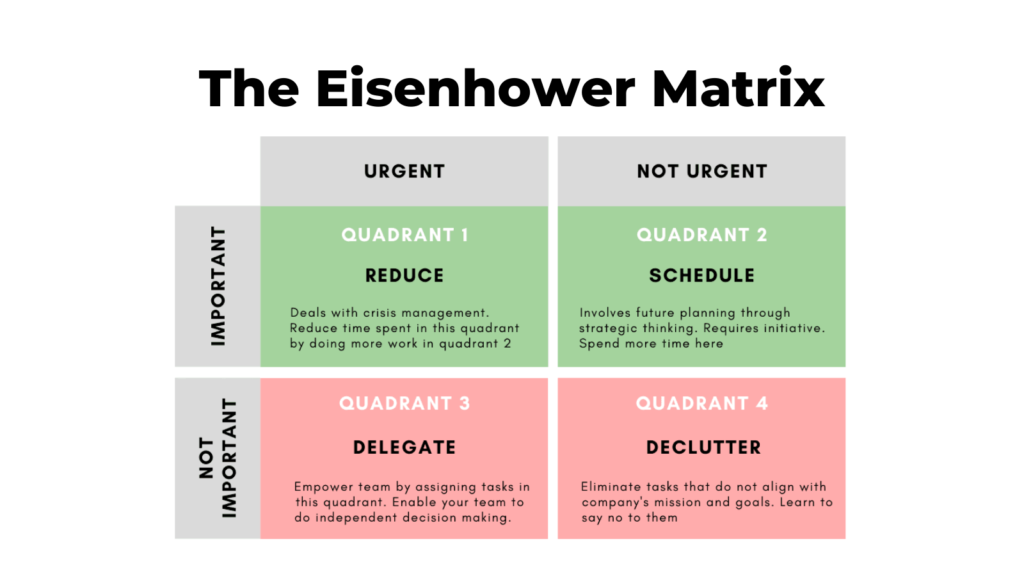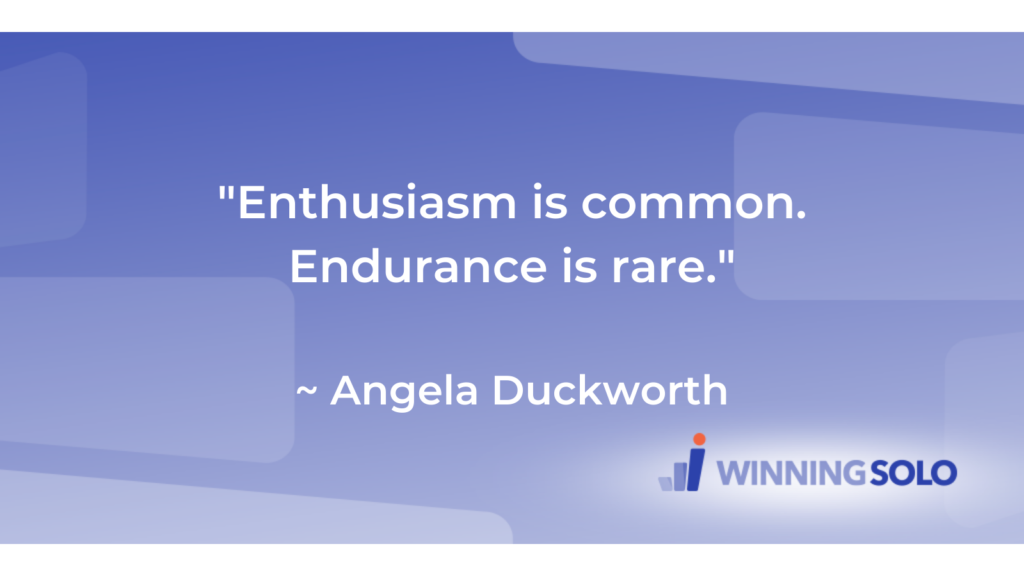On June 16, 1997, at age 27, I placed a bet on myself, eliminated my steady paycheck, and hung out my shingle as a positioning and strategy consultant.
My employment record at that time included nearly five years as a marketer manager at Van Melle, where I launched products like White Mystery Airheads and the Airheads 6-bar pack. It was an outstanding crash-course in both positioning and the art of doing more with less. We racked up some impressive numbers and had plenty of laughs.
I then joined a Fortune 200 company as a Group Brand Manager. I resigned that position after nine weeks. Miserable as I was during that brief time, it also provided the motivation to go solo.
I made the decision to launch my consultancy in a single day, and without a formal plan. I was brimming with both enthusiasm and naivete.
I’ve avoided the deepest ditches and I’ve gotten some things right. But I’ve also made plenty of mistakes. Here are the 24 most important things I’ve learned about consulting, freelancing and self-employment. I hope they may be of value to those of you who have made the leap, or are considering it.
1. The Primary Reason for Your Business to Exist Is to Meet Your Needs.
Let’s open with the big one.
I sometimes catch some flack for stating this so bluntly, so please re-read that statement. I didn’t say the “only” reason; I said the “primary” reason.
Of course, the customer matters. If you can’t find or keep customers, you don’t have a business.
But if your customers are happy while you’re miserable, I’d consider that a failure. Life is short.
You’re going to invest a lot of yourself into this venture of yours. And it’s tough to do your best work from the lower end of your confidence range. So be mindful of what lifts you up or pulls you down. And recognize that many of these factors are within your control.
Self-employment is, ultimately, an exercise in lifestyle design. If your business isn’t bringing you joy, either fix it or shut it down.

2. Protect the Asset. (You Are the Asset.)
I borrowed this line wholesale from Greg McKeown’s “Essentialism,” a book I’d recommend to any solopreneur.
When you’re self-employed, you can be tempted to work all the time. Every hour should translate to income, right? Wrong. That approach will leave you exhausted and one-dimensional.
I’m happiest when I prioritize my marriage, personal relationships, health and growth. As a result, my work time is sharper and more productive.
There is no such thing as “work-life balance.” There is life balance, and work is one part of life. I’ve (almost) always remained mindful of this hierarchy, and it’s served me well.
3. It’s Not a “Hustle.”
I’m not trying to hustle anyone, and I’m not trying to work myself into the grave. This is not a hobby, a side gig or a stopgap.
I’m running a long-term business, and I make my decisions accordingly.
4. Your Time Is Your Inventory.
If you owned a grocery store, you wouldn’t let people help themselves to your inventory, right?
Your time is your inventory. So track it rigorously, analyze it regularly, and invest it accordingly. Productive use of time is a hallmark of the successful soloist.
5. You Are Now a Marketer.
Let’s say you bake the tastiest pies in the world.
Does this fact alone mean you should open a bakery? Does this fact alone mean your bakery would be a success? No and no.
One of my earliest mistakes: I was so focused on serving my first client that I didn’t invest any time in finding others. (I guess I thought they would just appear on my doorstep?) So, a few months after opening my doors, my income dropped to zero again. Lesson learned.
Importantly, there are no mandatories here. You don’t have to have a blog or a podcast or whatever. But you do need to consistently and credibly put yourself in front of people who are in a position to hire you. That’s it.
Get very good at the work. And get very good at the things that bring you the work. Do those two things and you can freelance forever.
6. You Are Now a Salesperson.
You can’t escape this reality. So you may as well embrace it.
Prior to going solo, I had been a salesperson exactly once prior: On a college co-op at Color Tile, the now-defunct home improvement retailer. There’s a chance I was the worst salesperson in a chain of 700+ stores that was headed toward bankruptcy. So I had that going for me.
I didn’t magically improve when I started consulting. I spent a lot of time building decks that were all about me, then barreling through my slides in pitch meetings. And I tried some of that technique-driven crap like “the assumptive close.” None of this ended well.
Then I received a terrific bit of advice: “Just listen to understand.”
Now, I no longer think of it as “sales”; I think of it as “understanding.” It’s the first step in solving a puzzle.
If I can help the prospect, great! If not, maybe I can refer them to someone who can.
Nothing bad happens when we ask good questions and listen closely. And besides, “always be closing” is one of the worst life philosophies I can possibly fathom.

7. Everyone Is Not Your Client.
You can’t land that dream client until you identify that dream client.
Some clients aren’t a fit at all for what you do. Some are a hand-in-glove fit. Focus squarely on the latter.
It may sound counterintuitive, but narrowing your focus increases your odds of success. It makes your marketing sharper and your offering richer.
8. Take a Clear Position.
Here’s another early mistake I made: The failure to position myself.
In my first few years as a soloist, I described myself by the category generic: “A marketing consultant.” What an idiot! This gave a prospect zero clarity about what I did or how I could help them.
It wasn’t until I focused on the intersection of my passions, my strengths & a market need – bringing clarity to challenger brands – that my business took off.
A clear position makes it easier for others to hire and refer you.
9. Stay Narrow, Go Deep.
As a strategist, it’s my tendency to be wary of blanket statements like the one I just made. But I’ve found this to be a reliable rule.
There are plenty of surface-level offerings out there. If you go for depth, you’ll have a strategic advantage. Stick to one thing long enough, and you’ll develop both expertise and a unique point of view.
10. Widen Your Circle, Deepen Your Circle.
I’m not a natural networker. Some days – okay, weeks – I just want to hang out in my Strategy Cave, with my music collection and the cat.
But that’s not how business gets done. Business is about people. And people hire people they know, like and trust.
Widen your circle with real connections. Deepen your circle with real relationships. Do these two things habitually, and you’ll never have to worry about the worst possible positioning: “Invisible.”
11. Honor the “Beer Rule”
The “Beer Rule” is simple: If you wouldn’t get a beer with the people across the table, don’t take them on as clients.
Most people are pretty decent. But some aren’t. And every time I’ve ignored my gut and violated this rule, I’ve regretted it.
Your choice of clients can make the difference between work you love and work you dread. Choose wisely.
12. The Math of Your Income Is Remarkably Simple.
If you’re trading time for money, it looks like this:
Hours x Rate = Income
Whenever possible, I recommend that you sell on value, not on price. But even then, you should calculate your effective hourly rate at the end of each project. You’ll always learn something.
A reasonable starting point for your strategic plan: How can you increase both your hours and your rate? (The answer: Deliver greater value and effectively communicate that value.)
13. Personal Finance is Professional Leverage.
One of the first bits of advice I give to a prospective freelancer: Learn the basics of personal finance.
Why? Because this is freedom: Freedom to pass on those sketchy gigs, to ride out the valleys, or to tell that abusive client where to go.
And remain fiscally conservative. Make an appointment with yourself to review all expenses at least quarterly. The less you spend, the more freedom you keep. You may not need an office, let alone a goddamn foosball table.
A solid financial base is leverage. If you can comfortably walk away from any negotiation, you always have the upper hand.
14. Do What You Do Best. Scrutinize the Rest.
I didn’t go solo to do the administrative stuff. I went solo because I love the work and I wanted to do as much of it as possible.
Some admin is involved in any business. Be ruthless about it or it will hold you back. Minimize it, outsource it, automate it or ignore it.
15. Schedule Your Priorities.
The Eisenhower Matrix dictates that the “important but not urgent” activities should be scheduled.

What’s important but not urgent? For me, it’s exercise, date nights & vacations with my wife, personal relationships and business-building initiatives. These often hit my calendar weeks in advance. Your list, of course, may vary.
Lately, I’m in the habit of blocking my mornings for deep work, outputs and exercise. It’s tough to set a meeting with me before 11am.
But if these “important but not urgent” activities aren’t on my calendar, they probably won’t happen.
16. Work Hard and Work Smart
“Work smarter, not harder” offers a false choice.
Whether you’re ineffective or lazy, the outcome will be about the same.
Work hard and work smart, and you’re almost certain to succeed.
17. Your Zone Is Your Own.
I know a consultant who puts on a suit every day, even if he’s working from home. He keeps a strict workday.
Me? I keep a more flexible schedule, and I’m wearing a t-shirt and sleep shorts as I type this.
We’re both doing fine. Find what works for you, and do that.
18. Take the Lessons From the Lumps.
After 24 years, I have a handful of horror stories, but no permanent scars.
One pair of founders worked my fee way down, then abused my time, and several rules of common decency, during the project. I ended up making about $40/hour on that one. That’s my fault, for not setting boundaries and sticking to them.
One Cincinnati-area agency owner reneged on a verbal agreement, after four of us had completed months of work on his behalf. Seventy grand evaporated just like that. That’s our fault, for not ensuring that our team leader got it in writing and got money up front.
Two clients have tried to renege on signed contracts. Those weren’t my fault. All I can do is never work with those people again, and warn others when I have the chance.
When someone shows you who they are, believe them. Learn what you can, protect your downside and move forward. (If you figure out how to do this without harboring revenge fantasies, let me know.)
19. Keep Going.
In the words of Angela Duckworth: “Enthusiasm is common. Endurance is rare.”
There are peaks & valleys in this gig, and some of biggest peaks follow the deepest valleys. Quit too soon and you’ll miss the peaks.

20. Play to the Height of Your Abilities.
Work at the top of your pyramid of skills & abilities, not the whole damn pyramid. This is where you’re delivering maximum value to your clients.
And always be increasing those abilities. Embrace opportunities that will add a new tool to your kit. This increases your range.
21. Maintain “Beginner’s Mind.”
As a consultant, I’m paid to be “the guy with the answers.”
The danger: I might start to think I really do have all the answers! That’s the first step on the path to ignorance.
My clients know their businesses better than I ever will. On Twitter, there are people half my age dropping daily knowledge bombs about community, copywriting and launching. Brand & business strategy are constantly unfolding. There’s always more to learn.
22. Do Meaningful Work in a Healthy Environment.
That’s my professional mantra. It doesn’t have to be yours.
But over the years, I’ve learned that my work must meet two criteria: It must have purpose, and it must happen in positive conditions. If either of those components are missing, I’m anywhere from uninvested to miserable.
Some clients routinely ignore agreed-upon deadlines, are slow to pay, or are abusive. These are symptomatic of unhealthy environments.
And some businesses want to collect eyeballs and profits, but without doing a damn thing to make the world a better place. That’s not work that matters.
There are plenty of brands who are doing the right things and doing them right. There’s really no point in partnering with anyone else.
23. Never Take It Lightly.
There are entire corners of the internet dedicated to client-bashing. At times it’s well-deserved. But it’s worth remembering:
Clients take a huge risk when they hire us. They place their budgets, their objectives and their reputations in our hands.
It’s incumbent upon us to honor that trust, every time. If someone gives you a shot, give them your best work.
24. Nobody Works Alone.
I won the lottery in the wife, parental and in-law departments. I’ve got a clutch of friends who have had my back from the get-go.
Plus I know a bunch of people whose minds and character I trust, and sometimes we get to work and play together. And several clients have become very good friends.
I use the term “soloist” often. But in no way is this a solo gig. My “without whom” list is LONG.
It’s been an exhilarating and enjoyable 24 years. I’m grateful to have had the opportunity to do what I love for this long. And I’m well aware of how lucky I am.
Thanks for reading. Ask me anything!
Your time is valuable, and I hope I’ve rewarded it. If so, your shares are greatly appreciated, as I try to spread the gospel to as many freelancers as possible.
Looking for a guide who can help you reach your goals and play the game your way? I have a limited number of slots available for 1-1 coaching. Click here to find out more about how my customized coaching can help you level up.
Copyright 2021 – Matthew Fenton. All Rights Reserved.

